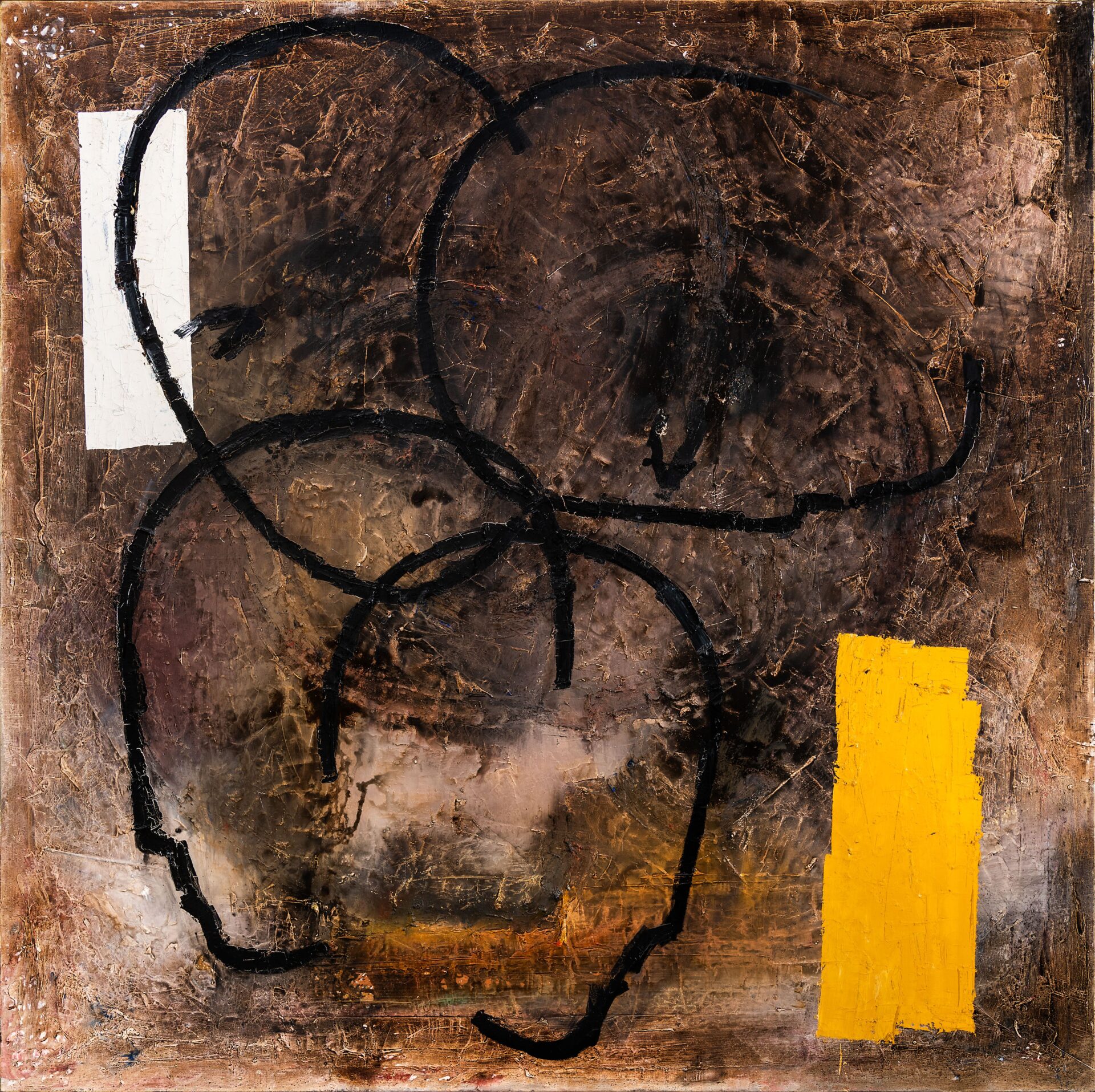Rafael Canogar is one of the leading exponents of Spanish Informalism, both as a founder member of the El Paso group and for his individual career.
From a young age he showed great interest in painting and sculpture, which led him to work as a pupil of the painter Daniel Vázquez Díaz. In 1955, he produced his first abstract paintings, strongly influenced by the work of Joan Miró, and in 1957, together with Antonio Saura, Manuel Millares, Luis Feito and others, he founded the El Paso group, which represented a real breath of fresh air in the highly impoverished Spanish postwar art scene.
El Paso was inspired by the Abstract Expressionism of American artists such as Jackson Pollock and Willem de Kooning, as well as by Spanish gestural painting of the period. Rafael Canogar was characterised by a passionate emotional approach to his art and a concern for social reality, which made him one of the most outstanding artists in the group.
In 1963 he took a radical turn in his artistic career and moved into figurative painting, with a strong element of social commitment. These works reflect his interest in the social and political situation of the country and constitute a critique of the Francoist dictatorship. However, in the mid-1970s he returns to abstraction, the style in which he has been working for the rest of his career. His most recent work is characterised by a more colouristic type of abstraction in which thick brushstrokes play a very prominent part.
The awards he has received include the São Paulo Biennial Grand Prize (1971), the Spanish National Visual Arts Prize (1982), the Tomás Francisco Prieto Prize (2002), the Gold Medal for Merit in the Fine Arts in Spain (2003), the Community of Madrid Visual Arts Culture Prize (2005) and the Spanish National Graphic Art Prize (2011). Since 1998 he has been a member of the San Fernando Royal Academy of Fine Arts.
The Hortensia Herrero collection includes several works by Canogar, ranging from classic paintings of the 1950s to more recent works created in 2022.
